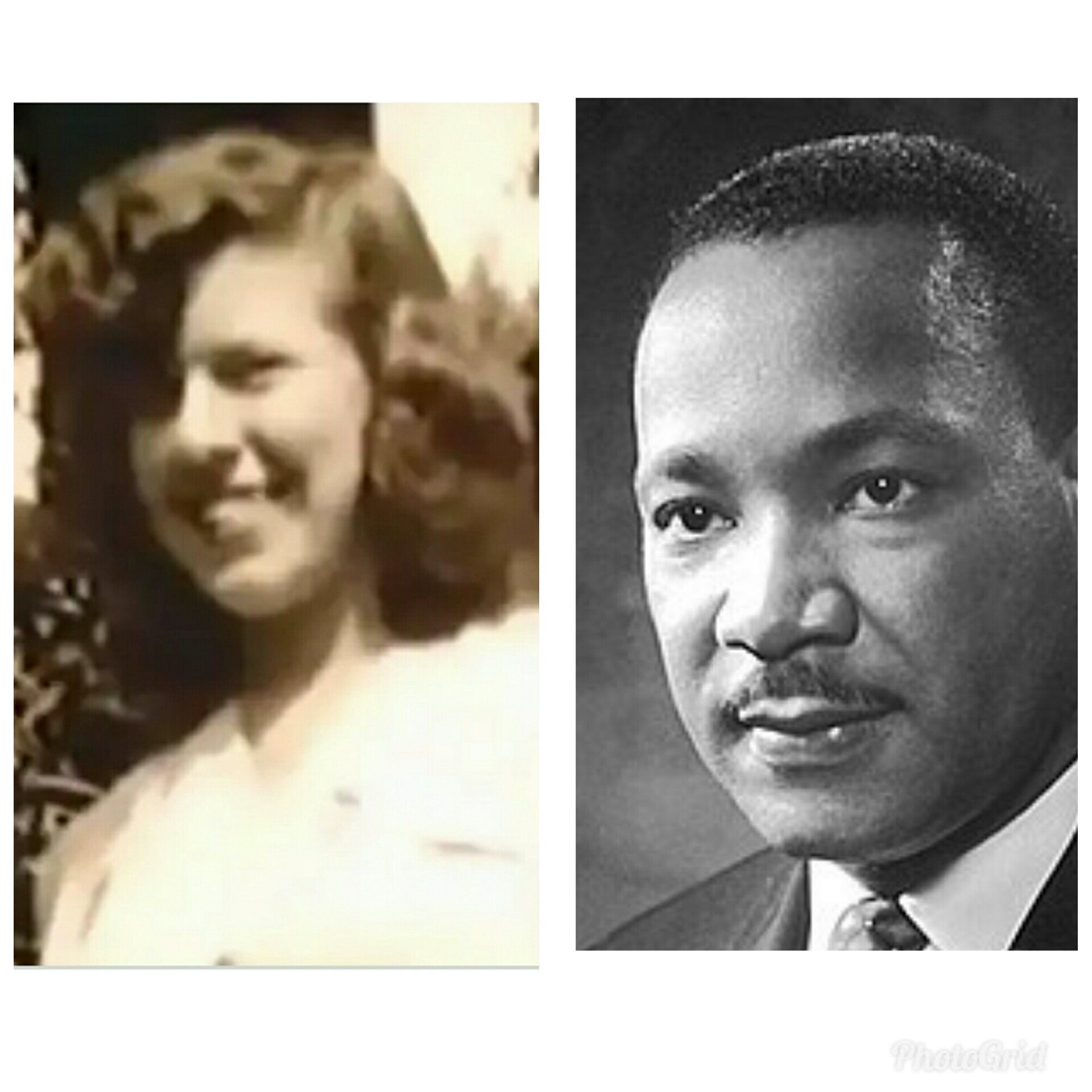A hidden chapter in the life of Martin Luther King Jr. reveals a love story rarely spoken of, a romance that adds a new dimension to the man we think we know. Before Coretta Scott King, there was Betty Moitz, a young white woman who captured the heart of a young Martin Luther King Jr. Their love story, kept secret for decades, whispers of forbidden love amidst the racial tensions of the 1950s. It offers a poignant glimpse into the personal life of a man who would become a symbol of hope and equality. This is not just a historical account; it’s a love story, complex and poignant, and it’s time we heard it.
The Secret Love of a Young King
Betty Moitz. The name itself evokes a sense of mystery, a whisper from the past. She represents a hidden chapter in the life of Martin Luther King Jr., a romance interwoven with the story of one of history’s most influential figures. Long before the marches, the speeches, and the dream that captivated a nation, there was Betty. Their paths crossed at Crozer Theological Seminary in Pennsylvania in the late 1940s. While some sources identify Moitz as an art student,[https://www.lolaapp.com/] others suggest she worked in the seminary’s kitchen as a cook and dietician. Further research is needed to definitively establish her role at Crozer. Nevertheless, amidst the quiet halls of the seminary, a love story began to unfold. Their relationship, vibrant and passionate, blossomed during a time when interracial love was not only taboo but incredibly dangerous.
“Madly, Madly in Love” in a Divided World
Imagine a young Martin Luther King Jr., not yet burdened by the weight of his future, experiencing the intoxicating rush of first love. Betty Moitz’s own words, spoken years later, described them as being “madly, madly in love.” This simple phrase speaks volumes, offering a rare glimpse into the private world of a man destined for greatness. But how could such a love flourish in a society deeply divided by racial prejudice? The challenges they faced navigating the turbulent waters of societal expectations and the ever-present threat of disapproval must have been immense. Their secret, if revealed, held the power to shatter King’s burgeoning career and irrevocably alter the course of his life. It was a risk they both knowingly embraced.
The Weight of Societal Expectations
The pressures that eventually led to the end of their relationship were undoubtedly immense. Societal norms, deeply ingrained prejudices, and the fear of scandal likely played significant roles. King’s advisors, concerned about the potential damage to his reputation and future, probably cautioned him against the dangers of such a public romance. Could their love, as strong as it may have been, withstand the crushing weight of a nation’s prejudice? The breakup, perhaps inevitable given the circumstances, serves as a poignant reminder of the painful sacrifices demanded by the era. Both Moitz and the young man who would become a symbol of hope paid a heavy price, a testament to the personal cost of living in a segregated America.
More Than a Footnote: Reclaiming Betty Moitz’s Place in History
Betty Moitz is more than just a footnote in the vast and complex story of Martin Luther King Jr. She represents a crucial piece of the puzzle, a key to understanding the man behind the monument. This romance reveals a young King grappling with universal emotions – love, loss, societal pressure, and ambition. It adds layers of depth and complexity to his narrative, reminding us that even those who achieve extraordinary things experience the ordinary pangs of love and heartbreak. The very fact that their story remained hidden for so long raises important questions. Why was it silenced? What are the implications of reclaiming Moitz’s place in history? It challenges us to confront the often-sanitized versions of the past and embrace the complicated reality of human experience. By exploring this hidden chapter, we gain a more nuanced understanding of Dr. King’s humanity, seeing him not just as a leader but as a man who loved and lost.
A Voice from the Shadows
Betty Moitz’s 2016 interview, given shortly before her passing at age 89, provides an invaluable glimpse into this hidden world. Her words offer a unique perspective on King, allowing us to see him not just as a leader but as a young man experiencing the joys and sorrows of love. Her account prompts us to ask: What might have happened if their relationship had continued? How did this experience shape the man he became and the path he chose? Moitz’s story is more than just a love story; it’s a story about America, about race, about secrets and truths. It’s a story that deserves to be heard, not just for its own sake but for the light it sheds on the complexities of history and the human heart.
The Mystery of MLK’s Name Change
Martin Luther King Jr. was born Michael King Jr. Both he and his father later changed their names, a decision likely inspired by King Sr.’s trip to Germany around 1934 and his subsequent admiration for Martin Luther, the leader of the Protestant Reformation. While some have speculated about a connection between the name change and Betty Moitz, there is no evidence to support this claim. This article aims to clarify that point and delve into the untold story of Moitz and her relationship with the young King, offering a more complete picture of the man behind the movement.
Coretta Scott King: A Partnership Forged in Struggle
Coretta Scott King, wife of Martin Luther King Jr., was more than just a spouse; she was a partner, an activist, and a leader in her own right. Their shared passion for social justice formed the bedrock of their relationship, a bond that would shape the course of American history. Before his marriage to Coretta, however, King’s heart belonged to another – Betty Moitz. This earlier relationship, shrouded in secrecy due to the societal constraints of the time, adds a layer of complexity to King’s personal narrative. It highlights the difficult choices he faced as a young man navigating love, ambition, and the harsh realities of racial prejudice in the 1950s. The story of Betty Moitz, though largely untold for decades, provides crucial insight into the private life of a man who became a public icon. It humanizes him, reminding us that even amidst extraordinary circumstances, he experienced the universal struggles of love and loss.
Delve into the chilling worlds crafted by Anya Ahlborn and experience the poignant narratives of Shlomo Wiesel, whose words resonate with history and humanity.
- Unlock Elemental 2 Secrets: Actionable Insights Now - April 2, 2025
- Lot’s Wife’s Name: Unveiling the Mystery of Sodom’s Fall - April 2, 2025
- Photocell Sensors: A Complete Guide for Selection and Implementation - April 2, 2025
















